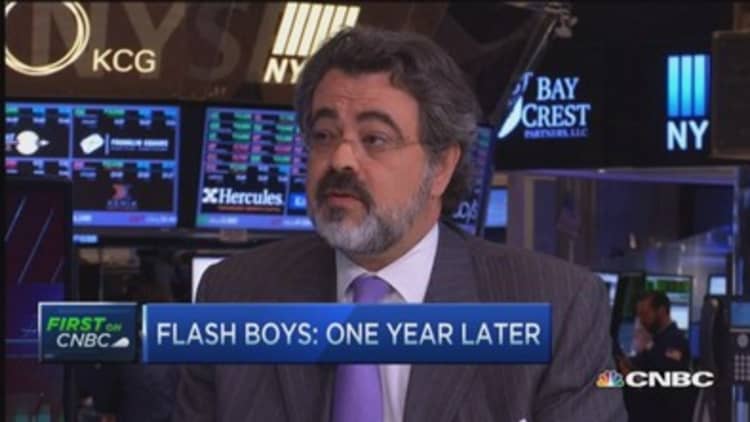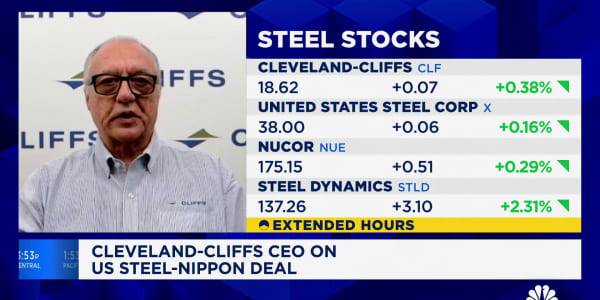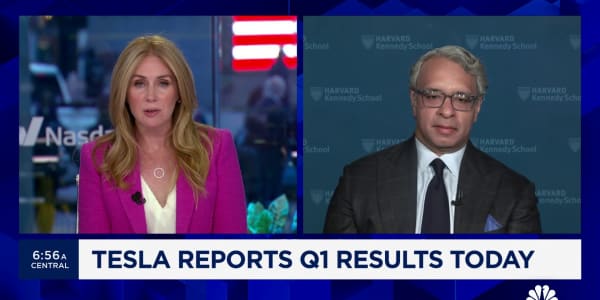
Wall Street pros still feel investors are playing on a tilted field, though they're less concerned about unfairness than they were a year ago, a new poll asserts.
Convergex, a New York-based brokerage that periodically takes the Street's pulse on a variety of issues, found that 57 percent of 245 "financial industry participants" believe "markets are not fair for all participants."
While still a high number, it is well below the 70 percent who said so last April, at the peak of the "Flash Boys" frenzy when author Michael Lewis asserted that markets are "rigged" due to high-frequency trading firms that exploit systemic weaknesses.
"You could say that it seems at least among market participants that the house isn't on fire." Convergex CEO Eric Noll said during a conference call Thursday. "However, with more than half of the people still believing there is unfairness in the market structure, that remains a very large concern of mine and other people who participate in the market."
Lewis sparked fierce debate with his book, which chronicled the efforts of Brad Katsuyama and IEX to eradicate the advantage high-speed traders had gained by, among other things, finding ways to front-run other firms' orders. Lewis claimed the stock market was "rigged" by outfits that used complex computer algorithms to execute trades in fractions of a second. Katsuyama built a platform where orders from various exchanges arrived simultaneously, eliminating the speed advantage.
Read MoreMichael Lewis: 'Flash Boys' market still 'rigged'
Subsequently, the 2014 Convergex poll showed a sharp bias against HFT. That changed this year.
In fact, the 2015 results saw just 36 percent of respondents classifying the practice as "harmful" or "very harmful," versus 51 percent last year. More respondents did say they had changed their practices due to HFT—42 percent in 2015 compared with 22 percent in 2014—though 51 percent said they had made no changes.
Moreover, most said they don't want to see increased regulation. Keeping regulations the same drew support from about 40 percent, while 24 percent said they'd like to see less and 3 percent opted for much less. Only 30 percent said they want more regulation, while 4 percent said much more.
Read MorePisani: Lost in all the 'Flash Boys' talk
"Clearly, market participants said more regulation is not the answer here," Noll said. "We're going to see continued regulation not just in the market structure space but all of the rules that in some way or another touch market structure."






